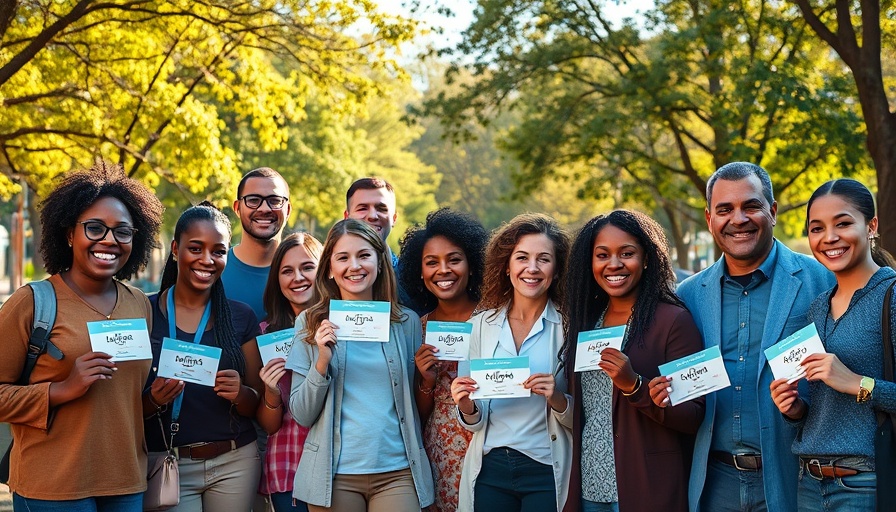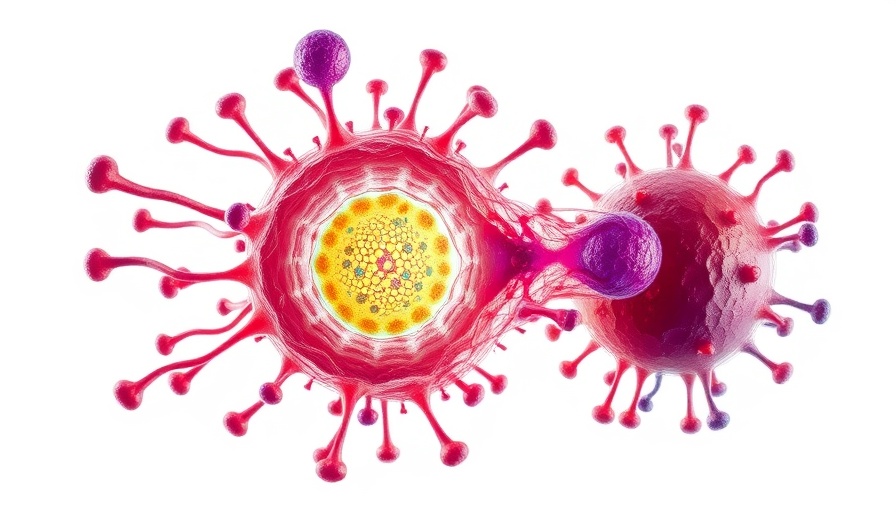
A Call to Action: Become a Lifesaver this National Donate Life Month
April is a month of renewal and hope, and what better way to embody that spirit than by registering as an organ donor? During National Donate Life Month, we are reminded of the profound impact that every individual can make by signing up to donate organs, eyes, and tissues. With over 100,000 people in the United States waiting for transplants, each moment counts, as an average of 17 people die daily while on the transplant list. The time to act and spread awareness couldn't be more urgent!
The Lifeline of Donation: Why Every Donor Matters
Understanding the significance of being a donor can inspire others and perhaps even save lives. The donations provide a lifeline, from heart transplants to the restoration of sight through cornea transplants. Consider this: just one organ donor can save up to eight lives! Each organ serves a specific purpose - kidneys and livers for those suffering from disease, hearts to replace failing ones, and lungs needed by individuals with chronic respiratory conditions like emphysema. The ripple effect of donating not only includes saving lives but also enhancing the quality of life for many.
The Journey to Becoming a Donor: Steps to Follow
The process of becoming an organ donor is straightforward, yet often overlooked. In states like South Dakota, you can register through your DMV when renewing your driver’s license or by filling out an online form. This act is more than just paperwork; it is a commitment to aiding others at a time of deep need. Make sure to communicate your wishes with family, as this helps prevent any confusion during emotionally charged moments.
Living Donations: Sharing Your Health
Living donations present a remarkable option for those seeking to help others immediately. You might consider donating one of your kidneys or a portion of your liver. Each year, many choose to donate to loved ones, embodying the spirit of community and compassion. A living donor can lead a perfectly healthy life with one kidney and a part of the liver can regenerate, making it a feasible option!
Donating Beyond Life: The Role of Birth Tissue
It might surprise you to learn that pregnancy can also be an opportunity for donation. Birth tissues, usually discarded after childbirth, contain valuable stem cells that can treat conditions like leukemia and various immune disorders. It’s a low-risk, high-impact action that can help families navigate the challenges of serious health circumstances.
Fostering Awareness: Community Engagement and Advocacy
As community members, we can enhance awareness of the vital topics surrounding organ donation. Organizing discussions in local neighborhoods, schools, and workplaces can spark essential conversations and educate people about donations. Using social media platforms to share personal stories about donation experiences and the difference it can make can resonate with those who may hesitate to register. It all begins with one conversation!
Facing Misconceptions: Clearing the Air
One of the biggest barriers to organ donation stems from misconceptions. Many mistakenly believe that registering as a donor can affect their medical care if they need it. In reality, medical professionals prioritize patient care above all else. Additionally, some think organ donors are required to be in perfect health, when in fact, many people with chronic illnesses can still become donors. By addressing these myths, we can encourage more people to step forward.
The Incredible Ripple Effect: Making Informed Decisions
As you reflect on your own life and the lives of those around you, consider the benefits and choices you can foster by becoming a donor. Your choice to sign up can ignite a widespread movement, creating a network of lives saved and communities strengthened. Inform your friends and family about organ donation and its life-changing benefits. You may find that little conversations inspire significant commitments.
This National Donate Life Month isn't just about raising awareness; it’s about taking decisive action to change lives. By becoming an organ donor, whether after passing or as a living donor, you hold the key to transforming the future for someone in need. Let’s champion this cause together!
To help spread the word, visit local health organizations or donate your time advocating for this important message. Every voice can make a difference, and your commitment may encourage others to join you on this life-saving journey!
 Add Row
Add Row  Add
Add 



Write A Comment